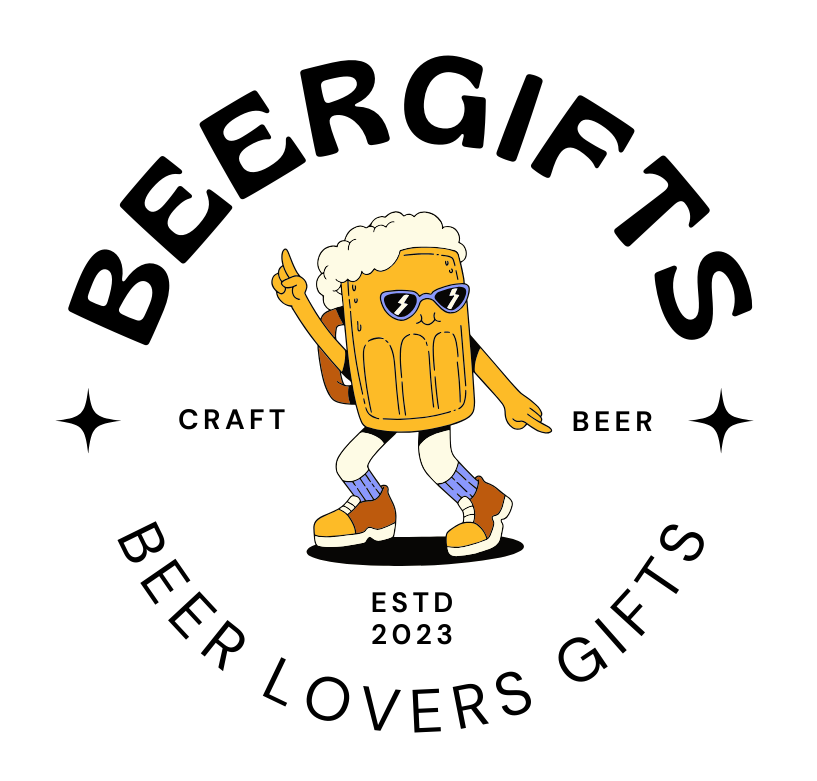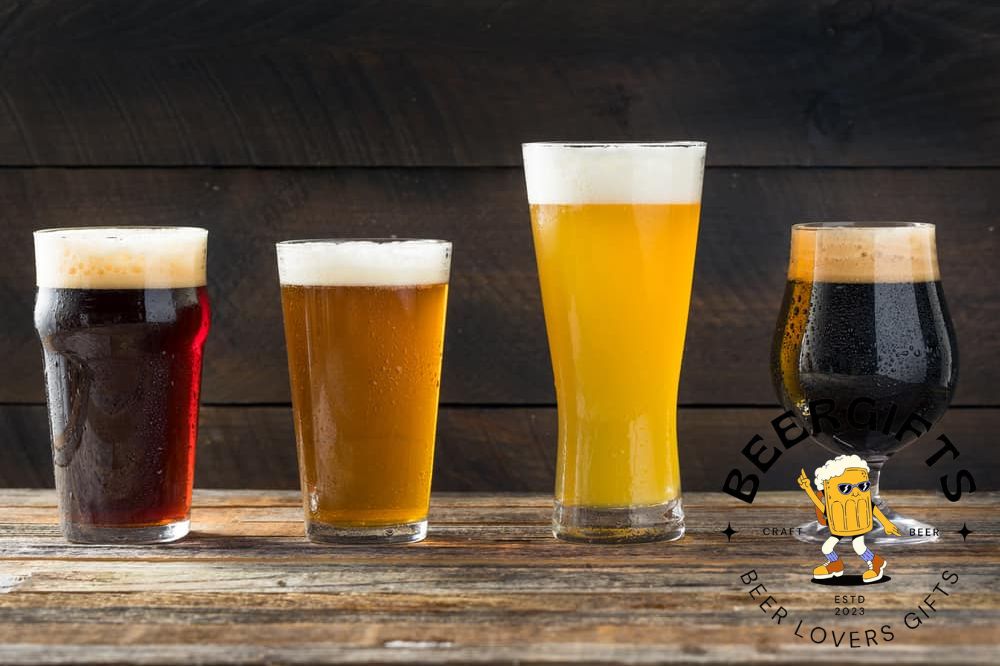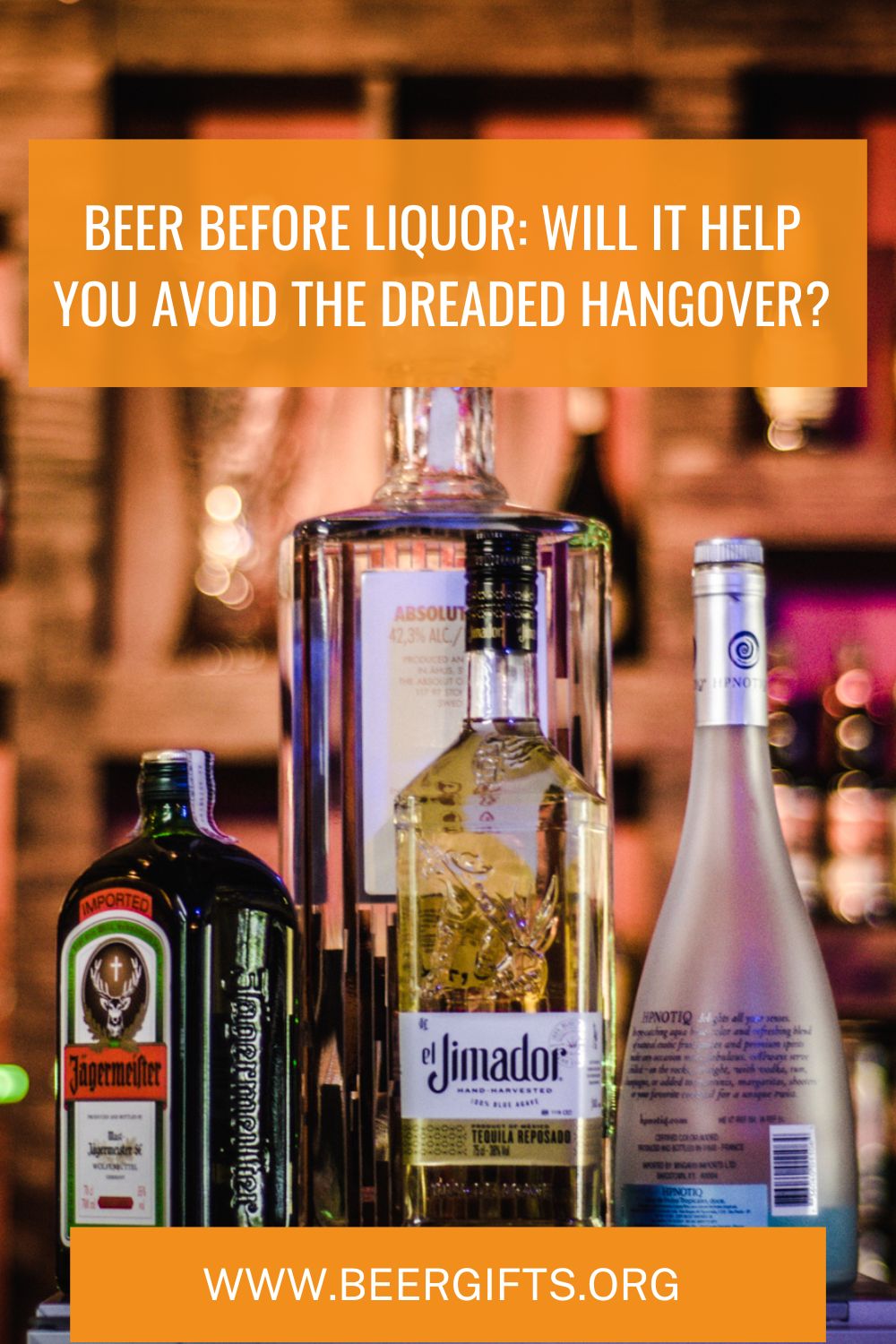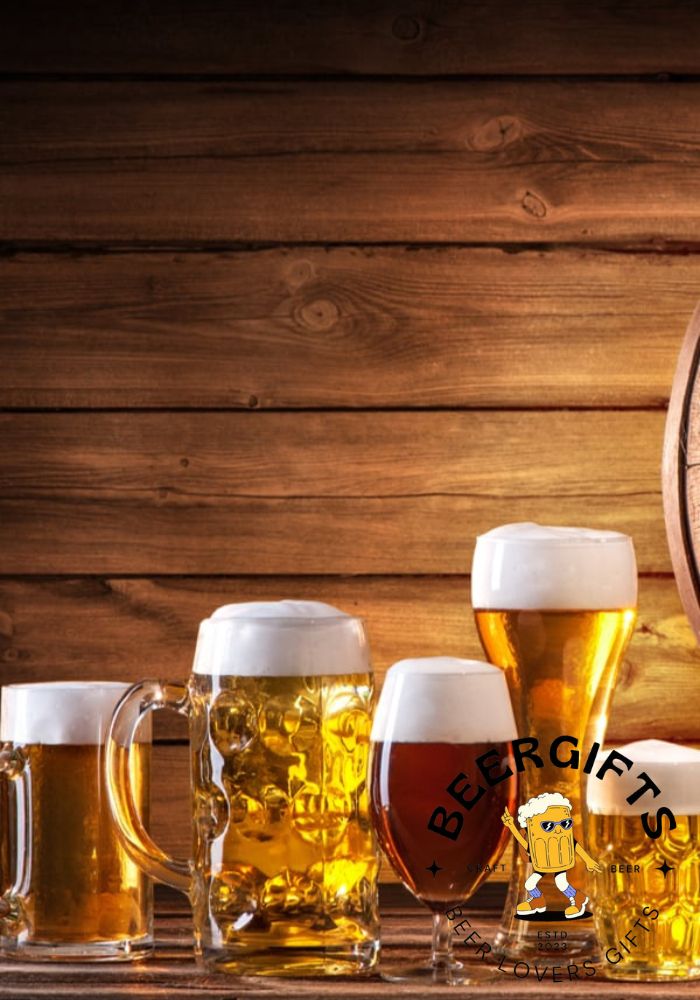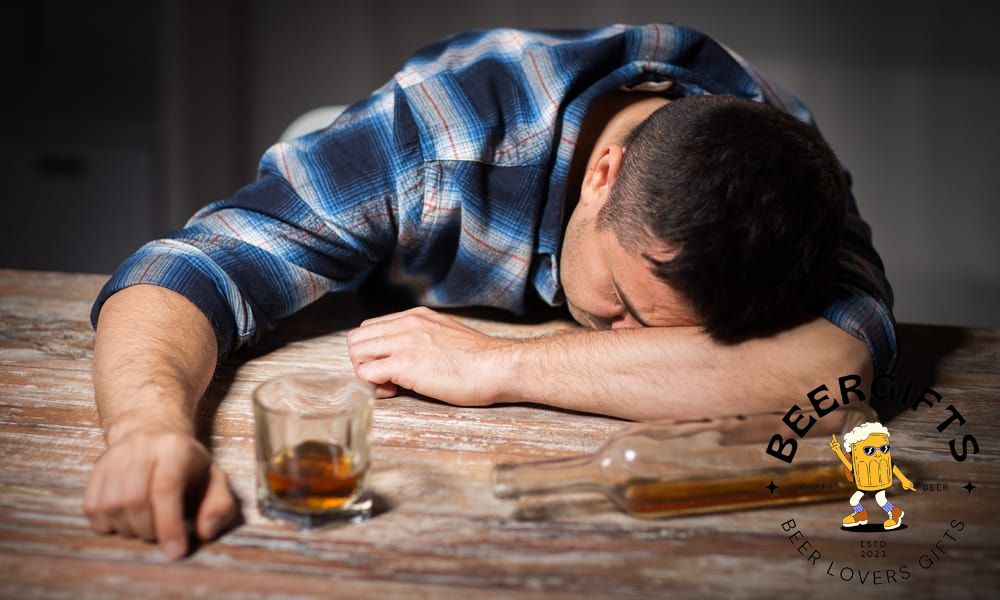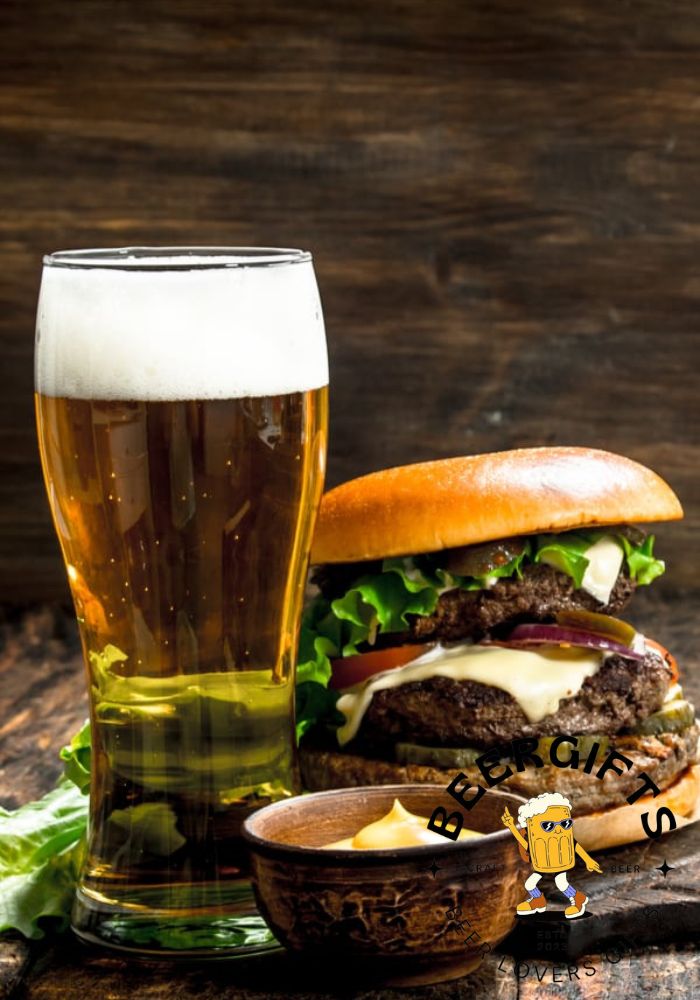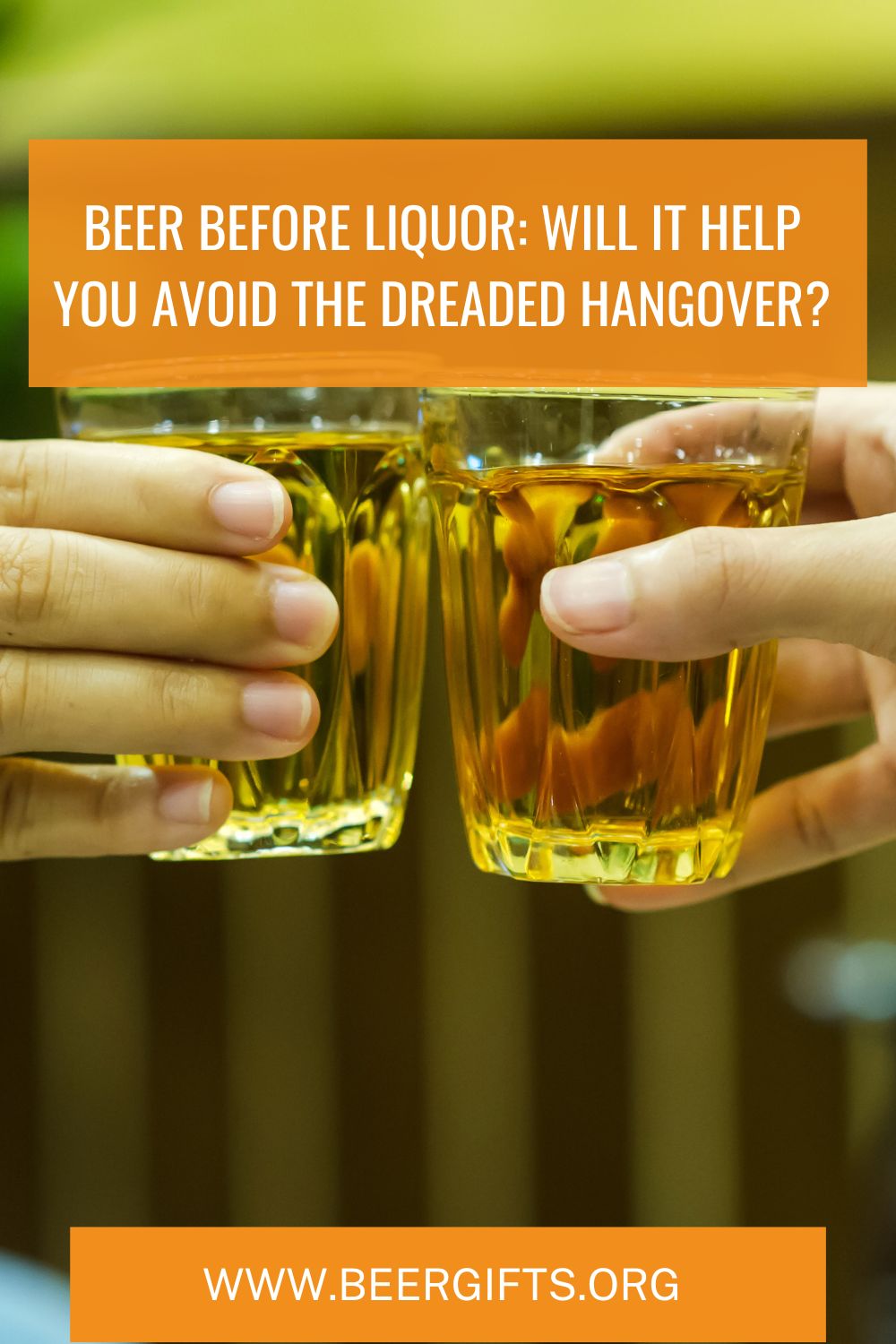If you’ve heard of the saying “beer before liquor” you may be wondering if it’s true! Can changing the order of your drinks really help you avoid the dreaded hangover?
We’re going to check out the facts and myths around this well-known saying. So step this way and find out if you should be following this advice!
What’s the Idea of “beer before liquor never been sicker”?
The full saying goes “Beer before liquor, never been sicker; liquor before beer, you’re in the clear.”
There’s a similar saying in Britain, where it goes “Beer before wine, feeling fine; wine before beer, feeling queer.”
In both cases, the idea is that by drinking alcoholic beverages in a particular order, you can avoid unwanted side effects.
Interestingly, the British version suggests drinking beer – the weaker drink – first. The American version has the beer coming at the end.
So which of them is right? Or are they both wrong?
What’s the rationale for “beer before liquor”?
The idea that drinking beer before moving on to liquor is the worst option is based on some theories that sound pretty reasonable.
The idea is that beer will increase your blood alcohol level more gradually, as it’s weaker. You might, if you were so inclined, then switch to liquor later in the evening to get a bigger effect. If there’s already alcohol in your bloodstream, a bigger hit from the liquor may tip you over the edge faster.
In other words, you can go from feeling fine, to being really quite drunk very quickly. And when you’re three sheets to the wind, you’re more likely to lose your judgement and drink even more.
There’s also the idea that finishing the evening with a weaker drink means smaller changes to your blood alcohol levels. That, it’s thought, reduces the nastiness of the hangover the next day.
Isn’t there something about bubbles?
The other part of the theory does indeed concern bubbles. Beer is usually carbonated, while liquor isn’t.
Proponents of having liquor first argue that this makes sense, because of the bubbles in beer. Those bubbles help the alcohol to enter your system more quickly.
So if you’ve had a couple of beers, those bubbles will be in your body. If you then switch to liquor, they’ll help the higher alcohol content enter your system fast. It’s kind of like the beer being a doorman to a hotel that is your bloodstream!
But does any of this have any basis in fact?
The bubbles aren’t to blame!
The answer is basically “no”. By far the most important thing that determines what impact drinking has on you, is how much alcohol you’ve drunk.
And those bubbles really don’t have anything to do with your hangover. That will kick in when all the alcohol you’ve consumed has been absorbed by your body. And you typically experience it for the first time on waking, several hours after your drinking spree.
Whether or not your liquor alcohol has been ushered through an open door by your beer bubbles, the whole lot will be in your system. It’s the quantity of alcohol that’s doing the damage, not the order of your drinks.
Why Do People Believe It’s True If It Isn’t?
Despite little evidence to support it, the belief that drinking beer after liquor is better for you is remarkably persistent. So why is that?
Well, it might just be that people often start with beer on a night out before progressing to liquor. “One quick drink” becomes several, and before they know it, they’re hitting the hard stuff.
When the horrible hangover hits the next morning, they look back at what happened the previous night. Rather than blaming their total alcohol consumption, they blame the order of their drinks. “If only I’d started with liquor,” they think, “I would have been fine!”
It’s a simple explanation, and it’s easy to see how it works. But it might not be the whole story.
Does Drink Order Affect Behavior?
Researchers at the University of Texas College of Pharmacy looked at drinkers’ behavior. They concluded that most people who started their evening drinking liquor didn’t progress on to beer at all.
Perhaps people whose first choice is liquor find the taste of beer weak in comparison. Whatever the reason, if they get a hangover, they can’t blame the order of their drinks.
And if a few liquor lovers do switch to beer, why might they do so? Well, the obvious answer is that they are consciously seeking to moderate their alcohol intake. That’s the opposite of the beer drinker who wants to get drunk faster, so switches to liquor.
And if someone is seeking to moderate their alcohol intake, it suggests that they want to avoid ill effects. And that in turn may mean that they drink less alcohol overall.
So drink order might not affect behavior. But perhaps people’s attitude to drinking alcohol affects both drink order and total consumption.
As far as we know, there’s no research to test this hypothesis – but it’s an interesting idea.
What Should I Do to Avoid a Hangover Then?
If drinking liquor before beer isn’t the key to a hangover-free existence, what is?
Well, the obvious answer is reducing your alcohol intake. That doesn’t mean you have to abstain completely.
If you’re a beer drinker, you could switch to lower alcohol, or even alcohol-free options. Or if that’s too big a challenge, why not switch to a lower alcohol beer for every other drink?
It’s a good idea to pace yourself too. Enjoy the flavors of your drink, rather than knocking it back. It will make for a more pleasurable drinking experience. And you’ll drink less overall.
Keep yourself hydrated with plenty of water. Try having a glass of water instead of a beer on every other round. You’re far less likely to suffer a hangover the morning after.
Drinking with food also makes it easier for your body to cope with the alcohol. So if you’re going out for the evening, try starting with a meal.
When there’s food in your stomach, the alcohol will stay there for longer. When your stomach is empty, it will pass through more quickly into your intestines. There it will be absorbed faster, causing a spike in your blood alcohol levels.
What Else Affects Hangovers?
There is evidence to suggest that some kinds of alcoholic drink are more likely to give you a bad hangover than others. That’s even when you control for the different levels of alcohol they contain.
The culprit seems to be substances called congeners. These are produced as a by-product of fermentation. They can take many forms – acids, ketones or other substances known as esters or aldehydes.
The link between congeners and hangover severity isn’t completely clear. But one theory is that the body has to use up energy to break down congeners. That means the process of breaking down the alcohol takes longer. And that gives the alcohol more time to wreak havoc on your hangover.
Another theory is that congeners can trigger your body to release stress hormones. These in turn lead to headaches, tiredness and other hangover joys.
Different beverages have different levels of congeners. Generally speaking, the longer a drink is distilled, the lower the amount of congeners it contains.
Beer and vodka are low in congeners, and gin, white wine and whiskey have medium levels. If you want to avoid high-congener drinks, steer clear of rum, red wine and brandy.
Avoid Smoking Too
We all know that smoking is extremely bad for our health. But did you know that it also contributes to hangovers?
The evidence suggests that smokers are more likely to experience hangovers than non-smokers. That’s yet another excellent reason to ditch the demon weed. You’ll save yourself a packet too (if you’ll excuse the pun).
My Mate Bob Never Gets a Hangover
We all have a mate called Bob who never gets a hangover. Okay, maybe he’s not always called Bob. But whatever his or her name is, they’re pretty annoying, right? How do they get away with drinking so much without feeling the effects the next day?
The answer to this irritating little conundrum isn’t entirely clear. Scientists say it’s down to genetics – the way your body metabolizes alcohol and the effect it has on you. But that’s really no more enlightening than saying, “My mate Bob never gets a hangover.”
The truth of the matter is that more research is needed to work out what’s going on with Bob. And he isn’t alone. Around a quarter of people escape without any kind of hangover, regardless of their drinking behavior.
So remember…
The main thing to remember if you want to avoid a hangover is not to drink too much! The order of your drinks makes precious little difference.
Pace yourself with lower-alcohol beverages, and stay hydrated with plenty of water. Make sure you’ve eaten to slow down the rate at which your body absorbs alcohol. Ditch the cigarettes. And you might also want to steer clear of red wine, brandy and rum.
And if you don’t have Bob’s genetics, think yourself lucky! Fear of a hangover can be a great motivation to cut your alcohol intake. And that will be good news for your health.
